Protist
A protist is a diverse group of eukaryotic microorganisms that are not plants, animals, or fungi. They are classified into the Kingdom Protista, which is considered a "catch-all" kingdom for eukaryotes that do not fit into the other three kingdoms.
Characteristics of Protists
- Eukaryotic: Protists have a membrane-bound nucleus and other organelles.
- Single-celled or multicellular: Protists can be unicellular, colonial, or multicellular.
- Diverse habitats: Protists are found in various environments including freshwater, marine environments, soil, and even the human body.
- Diverse nutrition: Protists can be autotrophic (photosynthetic), heterotrophic (ingesting food), or mixotrophic (both autotrophic and heterotrophic).
- Reproduction: Protists can reproduce asexually (binary fission, budding) or sexually (conjugation, syngamy).
Types of Protists
Protists are classified into several groups based on their characteristics:
- Algae: Photosynthetic protists that can be unicellular or multicellular. Examples include diatoms, dinoflagellates, and green algae.
- Protozoa: Heterotrophic protists that are typically unicellular and include amoebas, paramecia, and trypanosomes.
- Slime Molds: Protists that can exist as individual cells or form multicellular structures. They are often found in damp, decaying organic matter.
Importance of Protists
Protists play crucial roles in various ecosystems. For example, photosynthetic protists are primary producers in aquatic food webs, while heterotrophic protists are important consumers and decomposers. Additionally, some protists cause diseases in humans, animals, and plants.
Studying Protists
To study protists, one can use a microscope to observe their cellular structures, motility, and reproductive methods. Culturing techniques can also be used to grow and study protists in laboratory settings.
Key Takeaways
Protists are a diverse group of eukaryotic microorganisms with various characteristics, types, and ecological importance. Understanding protists is essential for comprehending the diversity of life on Earth and their impact on ecosystems and human health.
[Protist] Related Worksheets and Study Guides:
.◂Science Worksheets and Study Guides Sixth Grade. Introduction to Animals
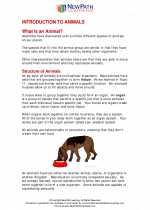
 Activity Lesson
Activity Lesson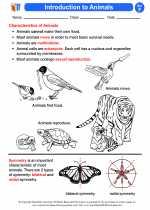
 Worksheet/Answer key
Worksheet/Answer key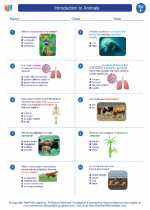
 Worksheet/Answer key
Worksheet/Answer key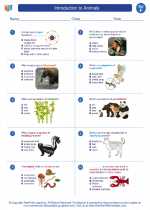
 Worksheet/Answer key
Worksheet/Answer key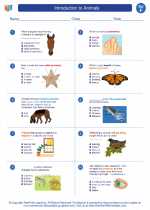
 Vocabulary/Answer key
Vocabulary/Answer key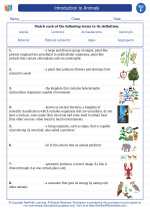
 Vocabulary/Answer key
Vocabulary/Answer key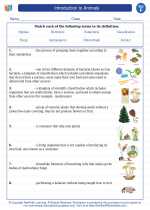
 Vocabulary/Answer key
Vocabulary/Answer key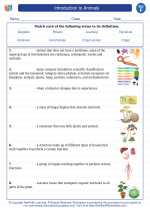
 Vocabulary/Answer key
Vocabulary/Answer key
